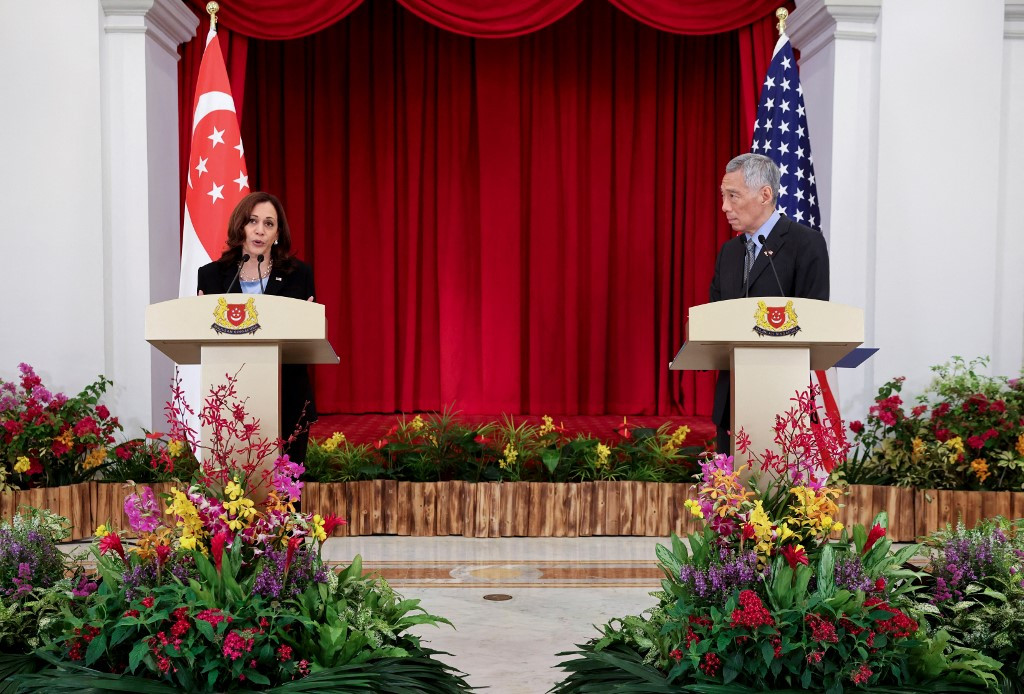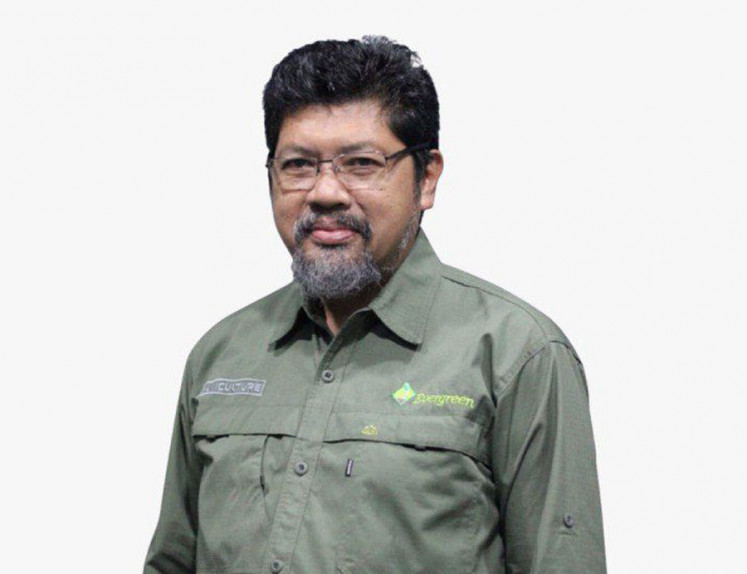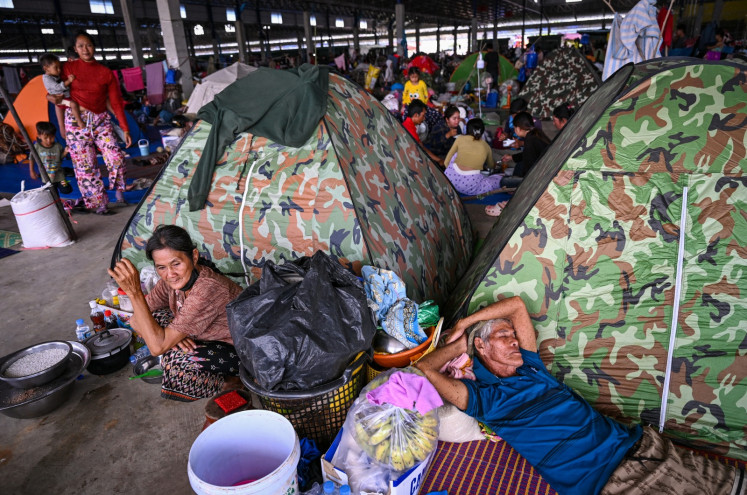Popular Reads
Top Results
Can't find what you're looking for?
View all search resultsPopular Reads
Top Results
Can't find what you're looking for?
View all search resultsUS climate diplomacy’s next stop: An ASEAN-US climate partnership?
Climate partnerships might open green business opportunities and help the region grow economically.
Change text size
Gift Premium Articles
to Anyone
U
nited States Vice President Kamala Harris’ tour of Southeast Asia has dealt with many issues, with vaccine diplomacy and the South China Sea being at the forefront. Yet, not to be missed are the developments regarding climate change diplomacy.
The US and Singapore agreed to a Climate Partnership, which focuses on cooperation in fields including sustainable finance and clean infrastructure. The US and Vietnam also strengthened their Comprehensive Partnership, agreeing on the importance of combating climate change. Among other initiatives such as climate-smart agriculture, the US importantly pledged aid to help Vietnam’s clean energy transition.
To elevate the efforts at climate diplomacy in the region, the US and ASEAN member states should consider initiatives to pursue an ASEAN-US climate partnership.
VP Harris’ visits to Singapore and Vietnam come amid renewed US interest in Southeast Asia, as the Biden administration seeks to strengthen ties with its Southeast Asian partners. Without sacrificing focus on traditional areas such as trade and defense, climate change has emerged as a key agenda.
Both the US and ASEAN have made policy moves on climate change. In Singapore, the Green Plan 2030 was recently launched, while at the regional level, ASEAN has devoted attention to developing low-carbon strategies and technology. The Biden administration’s green stimulus packages and moves at the G7 show similar commitment. While doubts remain over how sufficient their attempts are, they show that close attention is being devoted to the issue.
With this in mind, the climate-based diplomacy on display seems natural. Bilateral partnerships are welcome, and can be helpful if the commitments are substantively pursued. Yet, the initiatives should be scaled up to the regional level for maximum benefit.
A regional-level partnership can provide an institutionalized regional framework for cooperation on climate matters. The initial focus could be on lower hanging fruit like commitments to build capacity or share knowledge and best practices on issues relating to the climate and decarbonization.


















